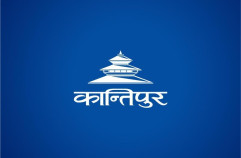Women in remote areas deprived of reproductive rights

We use Google Cloud Translation Services. Google requires we provide the following disclaimer relating to use of this service:
This service may contain translations powered by Google. Google disclaims all warranties related to the translations, expressed or implied, including any warranties of accuracy, reliability, and any implied warranties of merchantability, fitness for a particular purpose, and noninfringement.




35-year-old Maina (name changed) from Panchadeval Vinayak municipality was ready to take minilap (permanent sterilization) service at the family planning camp organized in the center of the municipality last week. He understood that there was no need for more children as he had 4 daughters and 1 son. In the hope of a son, after the birth of her fifth child after 4 daughters, she thought of doing a minilap.

'Son had a wish, that too came true . It is also difficult to raise 5 children . I thought that it would be more difficult if the child was born again,' she said, 'I told my husband about the mini lap. There is only one son. I want another son too . He started threatening that he will get another marriage if he does the operation. Because of her husband's fear, she could not even take the service that came to the village.'
Last week, Rita (name changed) of Ramaroshan rural municipality-6 planned to take minilap service. Having 2 daughters and 1 son, he also wanted children. But due to the pressure of her mother-in-law and her husband, she retreated . She advised her husband, who is in India for work, about having a minilap camp in the village.
'My husband asked me why I should have an operation when I was in Bombay,' she said, 'My mother-in-law has only one grandson, what will happen tomorrow, if you do an operation, I backed off after threatening her son to marry another .'
In the family planning camp organized in Mangalsen, 26-year-old Ratna (name changed) of Mangalsen-5 also made up her mind to take services. He earns his living by working and is worried about making the future of his 1 son and 1 daughter better. Having had 4 abortions in a period of 3/3 months, the camp opportunity came close to her home. But her husband was not ready to accept her advice.
'I have become weak due to the physical and mental pain of my husband, who keeps eating jad and beating me all the time . On top of that every 3 months I am having an abortion . I decided to have a mini-lap when I started giving pain without understanding my desire, she said, "She went to the hospital after her mother-in-law supported her." The husband went there saying that he would stop anyway . She went to beat her, but because there were many people, she was not able to beat her, so she abused her a lot.
According to Health Office Acham, the number of women taking permanent sterilization (minilap and vasectomy) services in family planning camps in 4 places in the district is more than men. In Panchdeval Binayak, 4 women (mini lap), 3 men (vasectomy), in Mangalsen 5 women, 1 man, Ramaroshan 23 women, 12 men, in Mellekh 4 women, 1 man 36 women and 17 men have family planning .
According to Jhanak Dhungana, head of Health Office Achham, the number of women who wanted to take service in the camp was more than this. Due to family pressure and threats from husbands, many women have been denied access to services .
In terms of reproductive health rights, every couple and individual should be able to make independent and responsible decisions about whether or not to have children, how many to have, how many to keep between births, etc. He said that in remote areas such as Achham, men's decisions prevail.
'This includes the right of a couple to choose the means and methods of family planning they want, check the fetus at least four times during pregnancy, abortion according to legal standards, scientific delivery, maternal and infant vaccination and treatment, post-natal care, etc.' It depends on the decision.'
 प्रकाशित : फाल्गुन २३, २०८० १६:०३
प्रकाशित : फाल्गुन २३, २०८० १६:०३

 २९.१२°C काठमाडौं
२९.१२°C काठमाडौं










